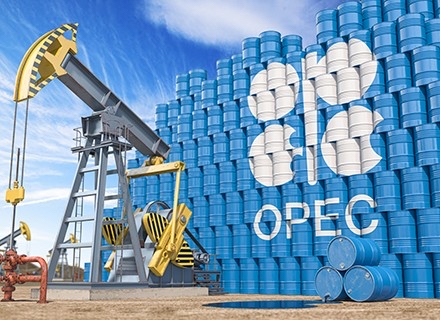In its first detailed assessment for 2025, OPEC projects a strong increase in global oil demand, forecasting a robust addition of 1.8 million barrels a day next year. This growth is primarily driven by China’s economic expansion and the overall recovery of the global economy. The forecast was revealed in OPEC’s monthly market report, coinciding with the organization’s response to theories suggesting a nearing peak in oil demand.
OPEC’s forecast counters the notion that the peak of oil demand is imminent due to the global shift towards sustainable energy in the face of climate change. Instead, OPEC’s Secretary-General Haitham Al Ghais emphasized that current reliable and robust short- and medium-term forecasts do not indicate any peak in oil demand. He argues that the market dynamics suggest continued growth in oil consumption, at least in the near future.
This forecast from OPEC arrives at a time when the oil markets are experiencing significant shifts. The organization notes that rival supplies are expected to expand by 1.3 million barrels a day next year. However, this increase in supply might not be sufficient to meet the growing demand. Consequently, oil markets are anticipated to remain in a deficit state through the end of 2025. This scenario underscores the potential need for Saudi Arabia and its allies to ramp up production significantly. These countries recently initiated new production cuts, which could affect market balances.
The global energy landscape is in a state of flux, with various factors influencing the oil markets. While climate change and the push for renewable energy sources are steering some countries away from fossil fuels, the current market dynamics depicted by OPEC’s report indicate that oil remains a critical component of the global energy mix. The organization’s forecast reflects the complex interplay between economic recovery, energy demand, and environmental considerations.
OPEC’s outlook on oil demand highlights the challenges in the global energy transition. While there is a growing emphasis on reducing reliance on fossil fuels to mitigate climate change impacts, the immediate energy needs and economic imperatives of nations, especially those with burgeoning economies like China, continue to drive oil consumption.
The report also sheds light on the geopolitical aspects of oil production and consumption. With OPEC’s member nations being major players in the global oil market, their production decisions significantly influence global oil prices and availability. The balance they must strike between meeting growing global demand and participating in the global shift towards more sustainable energy sources is delicate and complex.
Moreover, the predictions of continued oil demand growth present a challenge to global efforts to reduce greenhouse gas emissions. As countries strive to meet the targets set by international agreements like the Paris Accord, the reliance on oil and its environmental implications remain critical issues.
In conclusion, OPEC’s 2025 forecast paints a picture of a global economy still heavily reliant on oil, with demand continuing to grow in the short to medium term. This scenario presents a significant challenge to the global community’s efforts to transition to cleaner energy sources and reduce greenhouse gas emissions. The report emphasizes the need for a balanced approach, recognizing the current economic realities and the urgency of addressing climate change. As the world navigates this transition, the role of OPEC and its member nations will be crucial in shaping the future energy landscape.



